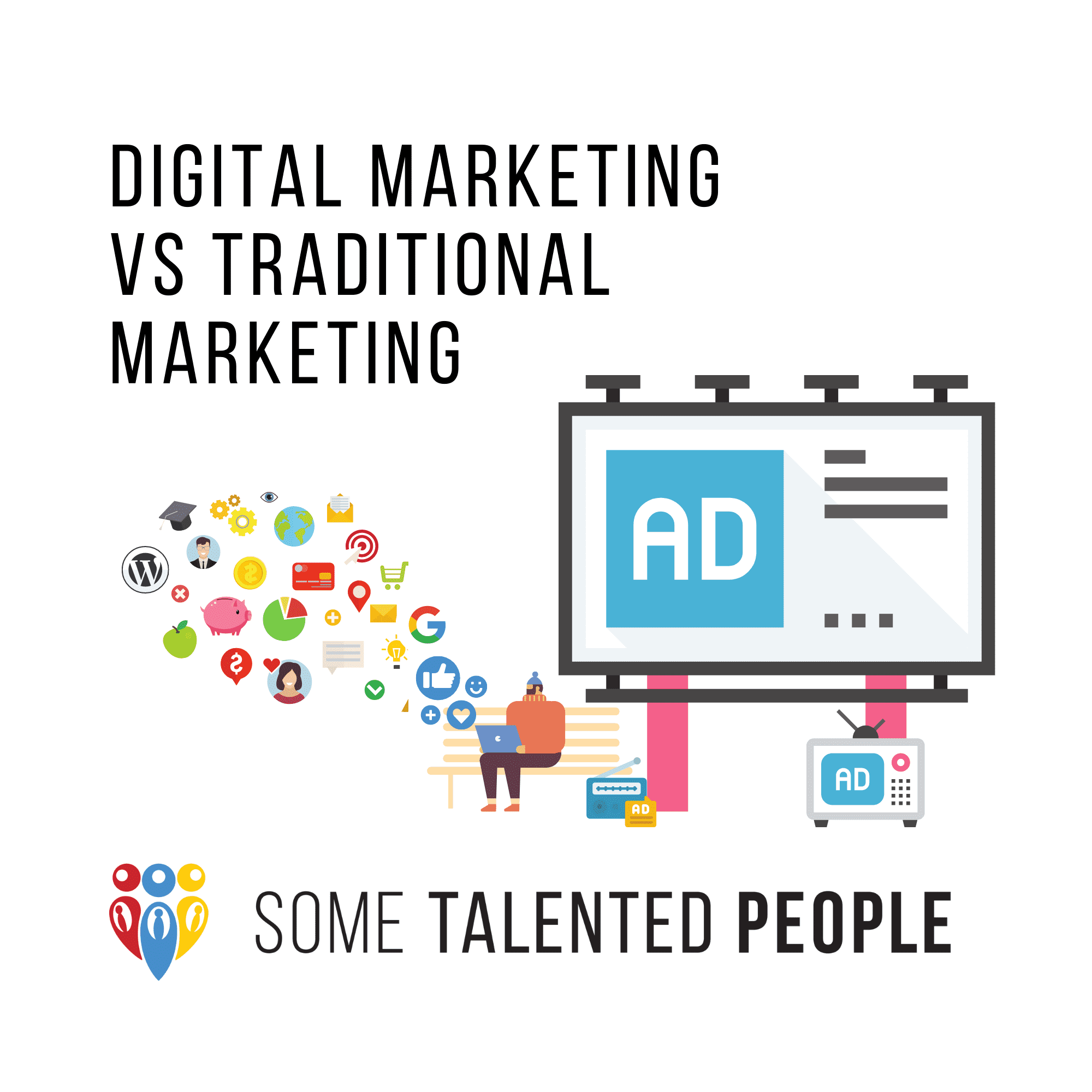Digital Marketing vs Traditional Marketing

What is traditional marketing?
Traditional marketing is a type of marketing that uses methods that have been used in the past, such as advertising, personal selling, and direct marketing. Direct marketing is a strategy in which the marketer makes one-to-one contact with potential customers, using personalised methods such as direct mail, telemarketing, e-mail and face to face.
Traditional marketing isn't going anywhere, at least not for a while. The fact of the matter is that traditional marketing still works extremely well for a lot of businesses. It's hard to argue against its efficacy when TV commercials can turn a brand into a household name or well placed billboards can make people hop in their car and drive 30 minutes across town just to visit your establishment. But traditional advertising isn't foolproof by any means.
What are the limitations of traditional marketing?
The cons of traditional marketing are that it's expensive, it can be difficult to track its efficacy, and it often doesn't work well with small businesses. Traditional marketing is often most effective for large businesses with big budgets, as they can afford to allocate significant funds towards advertising and promotion. It can also be difficult to track the return on investment for traditional marketing campaigns, as the results aren't always immediate or obvious. And finally, traditional marketing techniques often don't work well for small businesses, as they don't have the same reach or visibility as larger brands.
How does digital marketing make up for these limitations?
Digital marketing is cheaper, easier to track and has a wider reach than traditional marketing. It also allows for two-way communication between businesses and customers, which builds customer relationships and trust.
Digital marketing involves the use of digital technologies to promote brands and reach customers. The term is typically used in reference to advertising through websites, social media, display advertising and search engine optimisation (SEO), although it encompasses much more than just online ads. Digital marketing has increased in importance over recent years with the rise of smartphones and 'always-on' internet access which has led businesses to adapt their marketing strategies to suit this behaviour.
Digital marketing refers to both free and paid marketing channels such as search engines (organic or sponsored results), social networks like Facebook and Twitter, email lists, blogs and other website pages that are regularly updated on a consistent basis. Digital marketing is the use of digital channels to spread a message about a company's brand, products and services to consumers.
In terms of market coverage, digital marketing means reaching an audience through multiple channels in a cost-effective way without being limited by geographical boundaries. The traditional approach to reach targeted customers is only possible with mass media such as TV, radio or newspapers.
There are a number of reasons why digital marketing is better than traditional marketing. Firstly, it's significantly cheaper- businesses can reach a wider audience at a fraction of the cost of traditional marketing methods. Secondly, it's easier to track the efficacy of digital marketing campaigns- businesses can see detailed data on who interacted with their campaign, where they came from and what actions they took as a result. This data allows businesses to fine-tune their campaigns for even better results. Thirdly, digital marketing is more effective in terms of reach- businesses can target specific customers based on demographics, interests and even past behaviour. And finally, digital marketing allows for two-way communication between businesses and customers, building customer relationships and trust.
Can you use digital and traditional marketing together?
Digital marketing and traditional marketing can work together to create a more effective overall marketing strategy. Traditional marketing can be used to create awareness of a brand or product, while digital marketing can be used to drive traffic to websites and social media pages, as well as convert leads into customers. The two methods can also be used together to create more effective ads- for example, a traditional print ad could link to a website or social media page where people can learn more about the product.
In conclusion, traditional marketing is better for businesses with lots of money to spend, while digital marketing is cheaper and has a much wider reach. For small businesses, the two methods can be used together in order to make more effective ads.


